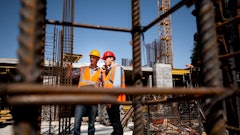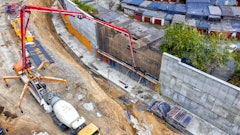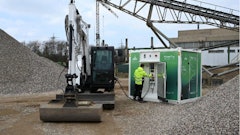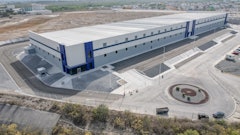
U.S. commercial real estate fundamentals remain strong — amid growing concerns over interest rates, oil prices, and volatility of the global economy — and leaders in the commercial real estate industry remain positive about their markets for the coming year, according to Q2 Sentiment Index data released today by The Real Estate Roundtable.
“Responses to our recent Sentiment Survey reveal continued stability in commercial real estate asset values and financing options,” said Roundtable CEO and President Jeffrey D. DeBoer. “The volatility in many economic measurements, coupled with the ongoing presidential election, are creating some uncertainty in real estate markets. However, supply and demand is in balance in most markets, and the strength of the U.S. economy relative to the rest of the world give real estate leaders reason to continue to be cautiously optimistic about the coming year.”
A majority of participants agreed that the availability of debt tightened significantly this quarter, with many pointing to the regulatory environment’s more stringent due diligence standards as the culprit. In particular, the overlapping regulations imposed on lenders may be creating some liquidity issues in some markets and are expected to modestly reduce the availability of debt capital over the coming year while equity availability is expected to remain about the same. Another consensus among respondents was that asset valuations should remain steady — with 71% expecting “about the same” or "somewhat higher" valuations a year from now.
The Q2 2016 Overall Sentiment Index registered at 49 — slightly down from 50 last quarter. [The Overall Index is scored on a scale of 1 to 100 by averaging Current and Future Indices; any score over 50 is viewed as positive.] The Current-Conditions Index is down three points this quarter, registering at 51. The Future-Conditions Index is now at 48, which is up three points from the previous quarter, where it registered at 45.
“Overall, we’re seeing a general sense that investors are still bullish on real estate investment in the U.S.,” said DeBoer. “Industry leaders are cautiously optimistic: job growth remains the most important objective followed by predictable interest rate movement and rational national public policy. The elections create uncertainly across the economy, but priority policy issues for real estate — such as growth oriented tax reform; appropriate regulation of financial markets; sustainability incentives; and safety and security information sharing — are not partisan issues. Our policy priorities reflect non-partisan goals of healthy, safe, educated communities.”
Data for the Q2 survey was gathered in January by Chicago-based FPL Associates on The Roundtable’s behalf.
Download The Real Estate Roundtable’s full Q2 2016 Sentiment Index report
The next Sentiment Survey covering Q3 2016 will be released in early August.
The Real Estate Roundtable Sentiment Survey is a measure of leading real estate executives’ confidence in financial and real estate markets. The survey, conducted by FPL Advisory Group, captures the perspectives of senior real estate executives, including CEOs, presidents, board members, and other executives from a broad set of industry sectors including owners and asset managers, financial services firms and operators.
The Real Estate Roundtable brings together leaders of the nation’s publicly held and privately owned real estate ownership, development, lending and management firms with the leaders of national real estate trade associations to jointly address key national policy issues relating to real estate and the overall economy. Collectively, Roundtable members' portfolios contain over 12 billion square feet of office, retail and industrial properties valued at more than $1 trillion; over 1.5 million apartment units; and in excess of 2.5 million hotel rooms. Participating trade associations represent more than 1.5 million people involved in virtually every aspect of the real estate business.






























